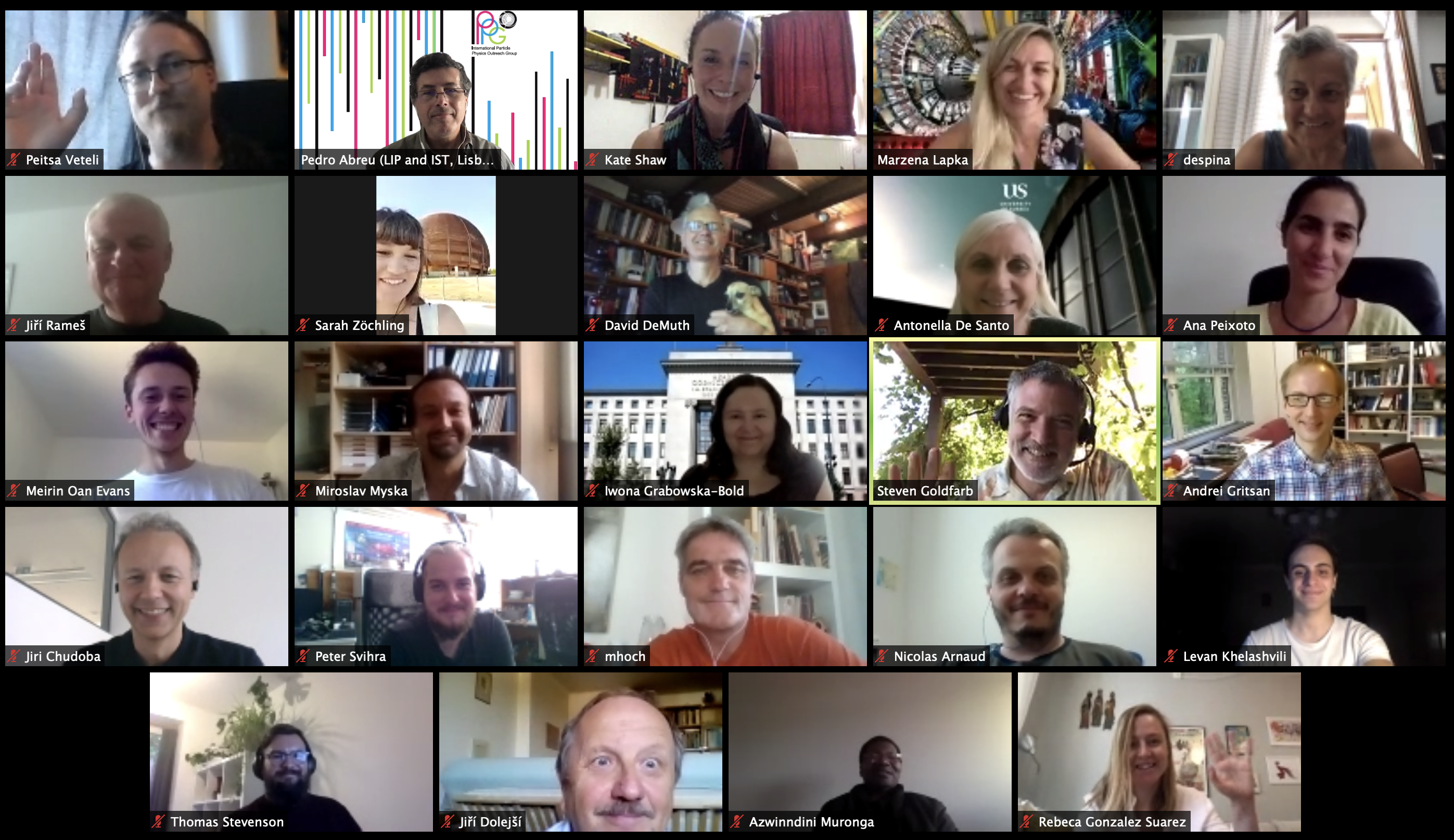Today is our second day of premiere sessions at a time accessible to attendees in Asia and Oceania. The sessions start at 8 a.m. CEST.
Message from the Director: Online vs Traditional Conferences (part 2)

There are no hard numbers but judging from the comments on Twitter quite a few people enjoyed taking part at ICHEP and staying with their family at the same time. And so did their family members for sure!
So should we return to the traditional form as soon as the situation allows or should we prepare for much more modest congress tourism? I would say something in between and the future is in opening remote participation of the classical meetings. That’s not new, after all. There is hardly any collaboration meeting without videoconferencing coverage. Yes, it is technically difficult, but we have all had to practise quite a lot these past months.
Today's Highlights
Here we highlight some of the talks that will be taking place during the 13 parallel sessions that we have today:
Neutrino Physics This session will be devoted to future projects to explore CP violation and the mass ordering. The matter effect is the key to assess neutrino properties, and information from various neutrino sources including supernova explosions must be utilized to understand it. We will have presentations from JUNO, KM3Net, SHiP, DUNE and even paleo-detectors.
Beyond the Standard Model Check out a wide range of BSM physics simulations and results from various collaborations (ILC, CLIC, FASER, SHiP, MATHUSLA, and MuSEUM), as well as the results of the latest SUSY searches at ATLAS and CMS!
Operation, Performance and Upgrade of Present Detectors The session will start with a detailed look at the ATLAS and CMS muon systems, with a special focus on the ATLAS New Small Wheel detector. The other two parts of the session will be dedicated to triggering, data acquisition systems, flavour-tagging and jet reconstruction.
Detectors for Future Facilities (incl. HL-LHC), R&D, Novel Techniques This session will cover recent developments in the field of detectors for the ILC, LHeC, CLIC, and FCC. We will also hear updates about the status of Hyper-Kamiokande, DUNE and JUNO; and conclude with a presentation on the new detection methods of UHECR.
Education and Outreach Fundamental laws of nature are elegant; and particle physics is tasty, you can paint it, and you can bring it with you to the biggest music festivals... The Education and Outreach Session is open to everybody! ...like CERN was on 14th to 15th September 2019!
Don’t miss our Poster Sessions starting at 1:30p.m. CEST!

Recommended by... Michael Peskin (SLAC)
“Today there will be a number of talks on the use of machine learning to find boosted objects, a review of current ATLAS results by Yi-lin Yang in the Detector session at 10:20 and new top-tagging machines by Soham Bhattacharya and Seungjin Yang in the Top/Electroweak session at 8:25. In the Flavor session, there will be an introduction to the Belle II tau physics program --- 50 billion tau pairs ! -- with an overview by Kenji Inami at 11:07 and first results by Marco Milesi at 11:59. Also, look out for 7 talks on physics at the International Linear Collider scattered around today's program.”
What You Missed Yesterday
If you missed yesterday’s sessions, never fear - you can watch them in our replay sessions, and via the session recordings that can be found here.
One of the most discussed topics during the Diversity and Inclusion session has been the impact of the pandemic on members of the community. To understand this better the conveners have produced a survey to gather information, please help by filling it in and sharing your experience (anonymously).
A highlight of the Strong Interactions and Hadron Physics session was the first measurement of the dead-cone effect by ALICE, along with exclusive production measurements from STAR and a proposal to search for QCD instantons at LHC.
The social side of ICHEP
Though we may not be able to take a traditional group photo, we still want to have a conference photo. We plan to create a group photo collage - but to do this we need your help!
We would like to ask you to upload a photo of yourself (a small portrait style photo is preferred) by 8 am CEST on Wednesday, 5th August, to cernbox (password: ichep2020photo). The photos will only be used to create the collage, and we will delete them after the collage has been created.

BeInspired@ICHEP2020
The BeInspired@ICHEP2020 project is a Cultural Collision between scientists and artists to showcase interdisciplinary topics to Czech students and inspire them to create artwork based on themes from science.
Watch this video of Michel Hoch introducing the BeInspired@ICHEP2020 project and explaining how the students were motivated to complete the project despite the pandemic; then go to the following location to view and vote for your favourite artwork.
